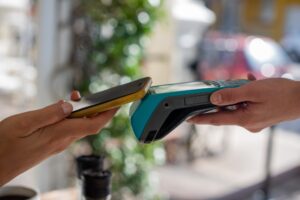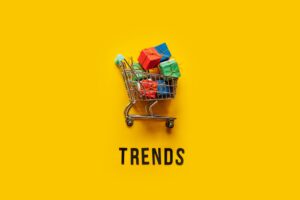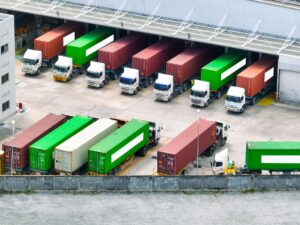Portugal’s Digital Commerce Revolution
The Portugal e-commerce market is valued at USD 6.45 billion in 2025 and is projected to reach USD 11.03 billion by 2030, advancing at an 11.33% CAGR. This remarkable growth trajectory reflects a fundamental shift in Portuguese consumer behavior and business operations, positioning the country as a significant player in the European digital marketplace.

The transformation of Portugal’s e-commerce landscape has been nothing short of extraordinary. Almost five of every ten inhabitants in Portugal were estimated to make online purchases in 2024. This digital adoption represents a massive leap from just a few years ago, with the share of e-commerce users who bought something online in the previous three months exceeded 35 percent for the first time in 2020. This rapid growth has been supported by businesses digitally transforming Portuguese businesses across all sectors.
What makes Portugal’s e-commerce evolution particularly compelling is its position within the broader European context. Portugal is the 38th largest market for eCommerce with a predicted revenue of US$7,532.3 million by 2025, placing it ahead of Peru. While this might seem modest on a global scale, the growth rate tells a different story – one of rapid digital transformation and untapped potential.
The foundation for this growth is solid. Portugal’s e-commerce sector is fueled by 88% internet penetration and 56% e-shoppers. This high level of digital connectivity, combined with changing consumer preferences and improved infrastructure, has created the perfect conditions for e-commerce expansion. As we move through 2025, these trends are accelerating, reshaping not just how Portuguese consumers shop, but how businesses operate, compete, and grow in an increasingly digital world.
Mobile Commerce Dominance
The rise of mobile commerce stands as perhaps the most transformative trend in Portugal’s e-commerce landscape. Mobile devices already account for 36% of online sales, with average monthly data usage hitting 12.7 GB per user. This shift toward mobile-first shopping isn’t just a preference – it’s becoming the primary way Portuguese consumers interact with online retailers.

Smartphones already account for 62.21% of transactions, and mobile commerce continues to grow at a 12.15% CAGR. This growth is particularly pronounced among younger demographics, who view their smartphones not just as communication devices but as essential shopping tools. The convenience of shopping anytime, anywhere has fundamentally altered consumer expectations and behaviors.
The infrastructure supporting this mobile revolution is robust and expanding. A 77.8% rise in 5G subscriptions has provided the bandwidth essential for AR-enabled product visualization, driving higher conversion on high-ticket items. This technological leap means that mobile shopping experiences can now rival – and often exceed – what’s possible on desktop platforms.
Portuguese retailers are responding to this mobile-first reality by redesigning their entire digital presence. Retailers are closing legacy showrooms and reallocating budgets to geo-targeted promotions that capitalize on tourist footfall. This strategic shift reflects a deep understanding that the future of retail lies not in physical locations but in creating seamless, mobile-optimized experiences that meet customers wherever they are. Many are turning to SEO optimization Portugal strategies to ensure their mobile sites rank well in search results.

The implications extend beyond simple transactions. Mobile commerce is enabling new forms of customer engagement, from location-based offers to instant social media purchases. As 5G coverage expands and mobile devices become even more powerful, we can expect mobile commerce to not just grow but to fundamentally redefine what e-commerce means in Portugal.
Rise of BNPL and Digital Payment Solutions
The payment landscape in Portugal is undergoing a revolutionary transformation, with Buy Now, Pay Later (BNPL) services leading the charge. Digital wallets, led by MB Way and Klarna, are expanding at a 16.32% CAGR, though cards still hold 44.32% share. This rapid growth in alternative payment methods reflects changing consumer attitudes toward credit and financial flexibility.
BNPL has emerged as a game-changer for Portuguese e-commerce. BNPL grew by 18% in just one year globally and is expected to continue growing by 9% per year. In Portugal, this growth is even more pronounced, with major players like Klarna establishing a strong presence. A líder global do BNPL é a sueca Klarna, que entrou no mercado nacional em 2021. Today, the app has around 400,000 users in Portugal.
The appeal of BNPL is multifaceted. Um dos principais benefícios do BNPL é a rapidez com que um consumidor pode obter um empréstimo de curto prazo para o pagamento fracionado das suas compras. This immediacy, combined with the typical absence of interest charges, makes BNPL an attractive alternative to traditional credit cards, especially for younger consumers.
Portuguese businesses are rapidly adopting these solutions. Eupago, a Portuguese company specializing in payment solutions for e-commerce, offers a BNPL service in Portugal that is easy to integrate and fully secure. Its integration capabilities with popular platforms like WooCommerce, Shopify, and Magento make it accessible even for smaller merchants.

However, this growth comes with challenges. In a presentation on the topic last year, the Bank of Portugal highlighted several concerns: the growing trend of BNPL business models — given their appeal to both consumers and merchants, this upward trajectory is expected to continue or even intensify. Regulatory concerns about over-indebtedness are prompting discussions about appropriate oversight while still fostering innovation.

The traditional payment landscape isn’t standing still either. In Portugal, bank transfers and instant payments are key methods for e-commerce transactions. They offer a secure and reliable way to pay. MB Way, Portugal’s homegrown digital wallet solution, continues to dominate local transactions, offering instant payments and broad merchant acceptance.
B2B E-Commerce Acceleration
While consumer e-commerce captures headlines, the B2B sector is experiencing even more dramatic growth. B2B transactions are forecast to grow at a 13.51% CAGR, outpacing B2C despite the latter’s larger base. This acceleration represents a fundamental shift in how Portuguese businesses conduct transactions and manage supply chains.

The pandemic served as a catalyst for B2B digital transformation, forcing traditional businesses to adopt digital channels. What began as a necessity has evolved into a competitive advantage. Portuguese B2B companies are discovering that digital commerce offers benefits beyond mere survival – it provides efficiency, reach, and data insights that were previously impossible.
Data monetization is emerging as a secondary revenue stream as merchants deploy privacy-compliant analytics around location-based push offers. This sophisticated use of data in B2B contexts is enabling more targeted marketing, better inventory management, and improved customer relationships.
The integration of B2B and B2C operations is becoming increasingly common. Portuguese businesses are adopting unified commerce platforms that can handle both consumer and business customers, recognizing that modern B2B buyers expect B2C-like experiences. This convergence is driving investment in better user interfaces, mobile optimization, and self-service capabilities for business customers.
Looking ahead, the B2B e-commerce sector in Portugal shows no signs of slowing. As more businesses digitize their operations and younger, digitally-native professionals enter decision-making roles, the expectation for seamless, efficient online B2B transactions will only grow. This trend positions Portugal well for increased competitiveness in European and global markets.
Market Segmentation and Consumer Preferences
Understanding what Portuguese consumers buy online reveals fascinating insights into the country’s digital commerce evolution. Hobby & Leisure is the largest market and accounts for 24.5% of the Portuguese eCommerce revenue. It is followed by Electronics with 21.7%, Fashion with 18.5%, Furniture & Homeware with 11.6%, Care Products with 9.0%, DIY with 8.5%, and Grocery with the remaining 6.2%.
The dominance of Hobby & Leisure products speaks to how e-commerce has evolved beyond necessity purchases to encompass lifestyle and entertainment shopping. Portuguese consumers are increasingly comfortable making discretionary purchases online, trusting digital channels for everything from sports equipment to crafting supplies.

Fashion e-commerce deserves special attention. By B2C product category, fashion led with 25.14% of the Portugal e-commerce market share in 2024. This strong performance reflects successful adaptation by fashion retailers to digital channels, offering virtual try-ons, detailed size guides, and hassle-free return policies that address traditional barriers to online clothing purchases.
Perhaps most intriguing is the growth in traditionally challenging categories. Food and beverages is forecast to expand at a 15.02% CAGR through 2030. This rapid growth in online grocery shopping represents a significant shift in consumer behavior, accelerated by pandemic habits but sustained by convenience and improving delivery infrastructure.
In February 2025, almost a quarter of Portuguese online shops sold apparel. The second-most frequent online shop category was home and garden, which presented a share of 13 percent. This distribution of online retailers closely mirrors consumer demand, showing a mature market where supply and demand are well-aligned.
The data also reveals interesting patterns about Portuguese shopping behavior. In Portugal, users still rely on the physical shopping experience to define their purchases. According to a recent survey, 30 percent of Portuguese consumers wanted to see an item before buying it, and 15 percent wanted to physically hold it on the day of its purchase. This preference for tactile experiences is driving innovation in how online retailers present products and handle returns.
Sustainability and Circular Economy
Sustainability has emerged as a defining force in Portuguese e-commerce, reflecting broader societal concerns about environmental impact. De acordo com os últimos dados disponíveis, divulgados pelo Eurostat em 2022, Portugal apresenta taxas de circularidade de 2%, colocando o país entre os piores da Europa neste âmbito. This challenging starting point is spurring innovation and investment in sustainable e-commerce practices.
The circular economy presents both challenges and opportunities for online retailers. O maior desafio que os sistemas de embalamento enfrentam prende-se com a otimização do espaço dentro das embalagens e a respetiva proteção adequada dos produtos. Portuguese e-commerce companies are increasingly adopting sustainable packaging solutions, recognizing that consumers value environmental responsibility.

A procura por encomendas mais sustentáveis está a impulsionar novos esforços para minimizar o desperdício, promover materiais ecológicos e implementar sistemas de reciclagem. Major retailers are responding by offering recyclable materials and using this sustainability focus as a competitive advantage.
The integration of circular economy principles into e-commerce extends beyond packaging. Portuguese startups are emerging with innovative business models focused on repair, refurbishment, and resale. A Garbags, empresa dedicada ao upcycling que, desde 2011, produz uma grande diversidade de acessórios (malas, mochilas, bolsas para óculos, lancheiras, estojos, necessaires e muito mais) com recurso a embalagens que, de outra forma, iriam tornar-se desperdício.
Looking forward, sustainability will become increasingly central to e-commerce success in Portugal. Consumer awareness is growing, regulations are tightening, and the business case for sustainable practices is strengthening. E-commerce companies that fail to address these concerns risk being left behind, while those that embrace sustainability can differentiate themselves and build stronger customer loyalty.
Logistics and Infrastructure Evolution
The backbone of Portugal’s e-commerce growth is a rapidly evolving logistics infrastructure. Investments by DPD, DHL, and CTT are compressing delivery times below 24 hours, allowing retailers to lower shipping surcharges and widen product ranges. This improvement in delivery capabilities is fundamental to meeting rising consumer expectations.
A major development reshaping the logistics landscape is the strategic partnership between CTT and DHL. As duas empresas combinarão redes de entrega de encomendas de alta eficiência no e-commerce B2B e B2C, incluindo entregas out-of-home, com capacidade diária superior a 1 milhão de envios na Península Ibérica. This collaboration creates a logistics powerhouse capable of handling the growing volume of e-commerce shipments.

The expansion of out-of-home delivery options is particularly noteworthy. An expansion of the out-of-home network is planned, with 10,000 new lockers to be implemented in the coming years. These pickup points and lockers provide flexibility for consumers who aren’t home during traditional delivery hours, reducing failed deliveries and improving overall efficiency.
Urban logistics are becoming increasingly sophisticated. Delivery density in the two largest metropolitan areas now supports multiple same-day slots, cutting courier expenses that historically deterred online grocery orders. This improvement is crucial for categories like fresh food and groceries, where speed and reliability are essential.
The integration of technology into logistics operations is accelerating. Portuguese logistics companies are investing in route optimization, real-time tracking, and predictive analytics to improve efficiency and reduce costs. As e-commerce volumes continue to grow, these technological investments will be crucial for maintaining service quality while managing operational costs.
Cross-Border E-Commerce Opportunities
Cross-border e-commerce represents a significant growth opportunity for Portuguese businesses. Europe is a promising continent for those looking to sell online. With over 400 million people connected to the internet, the Old Continent has nearly three times as many internet users as Brazil. This vast market potential is driving Portuguese companies to look beyond national borders.
With the devaluation of the real, Brazil has become highly competitive for exports. Portuguese businesses are finding that their products can be very competitive in international markets, particularly in Portuguese-speaking countries where language barriers are minimal.
The benefits of cross-border commerce extend beyond simple market expansion. Para empresas que optam pela exportação direta, existe a isenção de ICMS ou IPI, dependendo do tipo de produto. These tax advantages make international sales increasingly attractive for Portuguese e-commerce businesses.
However, cross-border commerce comes with its complexities. Um dos aspetos mais importantes é ter conteúdos localizados. Isto é, o site, a descrição dos produtos e todas as formas de comunicação com o cliente devem estar não só no idioma do país de destino, mas também traduzidos de uma forma que reflita a gíria local e expressões idiomáticas. Successful international expansion requires more than translation – it demands true localization.
Technology is making cross-border commerce more accessible. Recursos como o OMS (Order Management System) permitem otimizar os processos logísticos, incluindo, numa única plataforma, a visualização do estado das encomendas, a emissão de faturas de documentos de transporte. These tools help Portuguese businesses manage the complexity of international operations without massive infrastructure investments.
The AI and Personalization Revolution
Artificial Intelligence is transforming Portuguese e-commerce from a transactional channel into a personalized shopping experience. A more classic and well-known example is in e-commerce and online shopping. Thanks to AI, it’s now possible to deliver personalized product recommendations to consumers and provide relevant search results for those browsing or researching.

The impact of AI extends far beyond simple product recommendations. Com a capacidade de coletar e analisar os dados do cliente, as ferramentas modernas podem adequar o tipo de conteúdo e os canais de comunicação a cada indivíduo. This level of personalization was once the exclusive domain of luxury retailers with personal shoppers – now it’s available to any e-commerce business.
Portuguese consumers are embracing AI-powered shopping assistants. Alguns exemplos de inteligência artificial para e-commerce incluem chatbots e assistentes virtuais, utilizados por 67% dos consumidores no ano passado. These tools provide 24/7 customer service, answering questions and guiding purchase decisions with increasing sophistication.
Cart abandonment, a perennial e-commerce challenge, is being addressed through AI. More than 60% of users abandon their shopping cart in an online store. With the help of Artificial Intelligence and marketing automation tools for e-commerce, it’s possible to send automated messages to all customers who left their carts behind.
The sophistication of AI applications continues to grow. According to a Statista survey, 70% of decision-makers in the e-commerce sector believe that AI will improve their business by enabling personalization in the coming years, and more than 51% said it is something they are actively working on. This widespread adoption signals that AI is moving from an experimental technology to an essential business tool.
5G and Immersive Technologies
The rollout of 5G networks across Portugal is unlocking new possibilities for e-commerce through augmented and virtual reality. A 77.8% rise in 5G subscriptions has provided the bandwidth essential for AR-enabled product visualization, driving higher conversion on high-ticket items. This technological leap is transforming how consumers interact with products online.
Portuguese retailers are already experimenting with AR applications. NOS currently offers this solution in three stores: Cascais Shopping, Campo Grande, and Mar Shopping Matosinhos. These implementations allow customers to visualize products in real-world settings before making a purchase, addressing one of e-commerce’s traditional limitations.

This experience is enhanced through a Web App that uses Augmented Reality (AR) to produce 3D models of Zippy’s products. This allows all customers who access the Web App to try on and visualize the products in real size and in real time, without the need to wear, assemble, or physically handle them. This practical application shows how AR can solve real consumer pain points.
The business impact is significant. Segundo a Gartner, cerca de cem milhões de consumidores vão fazer compras em realidade aumentada, tanto online como em loja, já em 2020. While this prediction proved optimistic, the trajectory is clear – immersive technologies are becoming mainstream in e-commerce.
Looking ahead, the market for Augmented and Virtual Reality technologies in retail is estimated to exceed €1.4 billion by 2025. Portuguese e-commerce businesses that invest in these technologies now will be well-positioned to capture this growing market.
Leading Players and Market Competition
The Portuguese e-commerce landscape features a mix of international giants and strong local players. The top online retailers in the market are shein.com, amazon.es and continente.pt. This combination of global and local players creates a dynamic, competitive environment that benefits consumers.
Worten: One of Portugal’s largest e-commerce platforms, offering a wide range of electronics, appliances, and home goods. Fnac: A major player in Portugal’s e-commerce sector, specializing in books, electronics, and entertainment products. These established Portuguese retailers have successfully transitioned to digital, leveraging their brand recognition and local market knowledge.
International players bring different strengths. Spanish companies such as El Corte Inglés and Zara, but also global giants Amazon and Apple, were among the leading online stores in Portugal in 2022 based on net e-commerce sales. Their presence pushes local players to innovate and improve their offerings.
The competitive landscape is evolving rapidly. May 2025: FCamara partnered with Shopify to fast-track Iberian digital-commerce projects, targeting mid-market Portuguese firms eyeing US and Northern European exports. These partnerships are enabling Portuguese businesses to compete more effectively on the international stage.
Market concentration remains moderate. The top five players control roughly 45-50% of market sales, reflecting moderate concentration with scope for new entrants. This leaves room for innovative startups and niche players to carve out profitable positions.
Future Outlook and Strategic Implications
As we look toward the remainder of 2025 and beyond, Portugal’s e-commerce sector stands at an inflection point. Revenue is expected to show a compound annual growth rate (CAGR 2025-2029) of 9.1%, resulting in a projected market volume of US$10,691.0 million by 2029. This sustained growth trajectory suggests that e-commerce will continue to gain share of total retail sales.
The convergence of multiple technological and social trends creates unprecedented opportunities. Mobile commerce, AI-powered personalization, sustainable practices, and immersive technologies are not developing in isolation – they’re reinforcing each other to create entirely new shopping experiences. Portuguese businesses that can successfully integrate these elements will thrive.
However, challenges remain. Portugal apresenta taxas de circularidade de 2%, colocando o país entre os piores da Europa neste âmbito. Addressing sustainability concerns while maintaining growth will require innovation and investment. Similarly, the rapid pace of technological change demands continuous adaptation and learning.
The regulatory environment is evolving. With BNPL services growing rapidly and data privacy concerns mounting, businesses must navigate an increasingly complex compliance landscape. Success will require not just technological capability but also ethical business practices and transparent communication with consumers.
For Portuguese e-commerce businesses, the message is clear: the future belongs to those who can combine technological innovation with deep customer understanding. Whether serving local consumers or expanding internationally, success will come from creating experiences that are personalized, sustainable, and genuinely valuable to customers. The foundations are in place – now it’s time to build on them.
